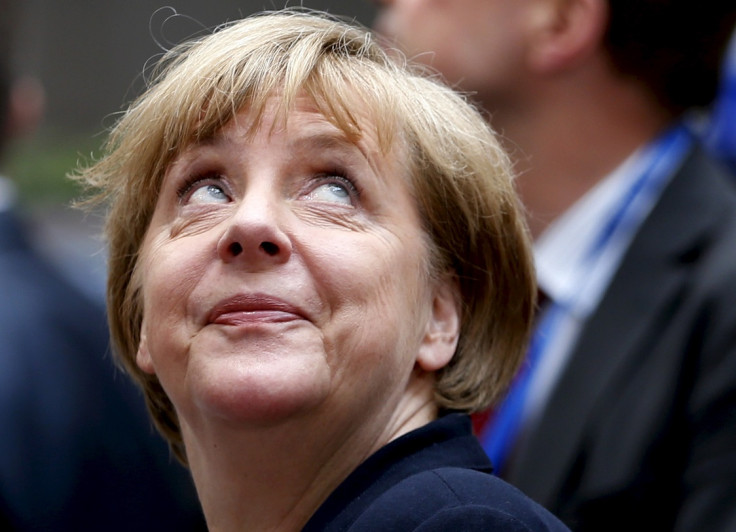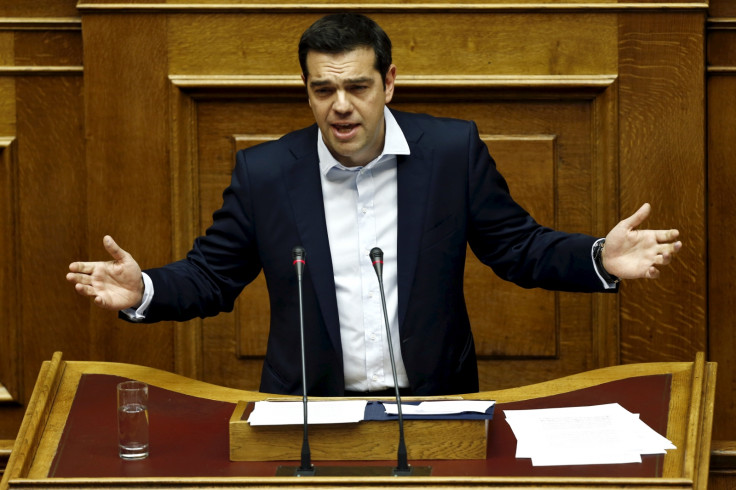Greece: Alexis Tsipras comes away from Brussels summit with prospects of a rescue plan

There could be light at the end of the tunnel for cash-strapped Greece after eurozone leaders agreed at an emergency summit to seek a last-minute rescue for its banks.
Italian Prime Minister Matteo Renzi told reporters after the 7 July summit that EU leaders would meet again on 12 July to approve a plan to aid Greece. The country's creditors – the International Monetary Fund, the European Central Bank and the European Commission – have to be satisfied with a Greek loan application and reform commitments.
The creditors are demanding cuts to pensions and the public sector workforce and the raising of VAT before it will authorise a €7.2bn (£5.1bn, $8bn) bailout.
European Council president Donald Tusk said this was now the "most critical moment in the history of the eurozone."
He added: "The stark reality is that we have only five days left ... Until now I have avoided talking about deadlines, but tonight I have to say loud and clear that the final deadline ends this week."
And French President François Hollande said: "It's not just the problem of Greece - it's the future of the European Union" that is at stake.
We have a Grexit scenario prepared in detail, we have a scenario as far as humanitarian aid is concerned. I am strongly against Grexit but I cannot prevent it if the Greek government is not doing what we are expecting
Greece has been warned that it has to come up with a credible and acceptable plan by the evening of 9 July, or face being kicked out of the euro.
"The Europeans expect that the Greek government will send proposals by [9 July] at the latest on how a rescue programme under the umbrella of the European Stability Mechanism might look," German Chancellor Angela Merkel said.
European Commission president Jean-Claude Juncker said: "We have a Grexit scenario prepared in detail, we have a scenario as far as humanitarian aid is concerned. I am strongly against Grexit but I cannot prevent it if the Greek government is not doing what we are expecting."
"The ball is in Greece's court," Renzi said. "Next Sunday [12 July] the final meeting will take place on Greece."
Greek Prime Minister Alexis Tsipras said he wanted a "socially just and economically viable agreement. The process will be fast. It starts in the coming hours with the aim of concluding it by the end of the week [10 July], at the latest."
Merkel was pessimistic when she arrived for the talks in Brussels. "It is not a matter of weeks but of a few days" to save Greece from collapse, Merkel told reporters on arrival.
However, after the talks she said she expected a formal loan request from Athens on 8 July and more detail on Tsipras's reforms.
Merkel said the eurozone leaders had a "serious, candid discussion" in Brussels that "reflected the seriousness of the situation at hand".

She added the leaders "obviously respect the results of the referendum" - where the No vote gained 61% support - but also had a "shared responsibility" for the European Union.
However, she added said she was "not exaggeratedly optimistic" for a solution.
Merkel is under pressure at home to kick Greece out of the eurozone. Reuters reported that she made clear it that Tsipras had to present convincing reform proposals after Athens rejected those that were on the table before its €240bn bailout expired on 30 July.
But eurozone finance ministers vented frustration that although their New Greek counterpart Euclid Tsakalotos was more polite than outspoken predecessor Yanis Varoufakis, he had brought no new proposals to 7 July the summit.
"I have the strong impression there were 18 ... ministers of finance who felt the urgency of the situation and there is one ... who doesn't feel the urgency of the situation," Belgian Finance Minister Johan Van Overtveldt said.
And Lithuanian President Dalia Grybauskaite complained: "With the Greek government it is every time mañana."
© Copyright IBTimes 2025. All rights reserved.



















